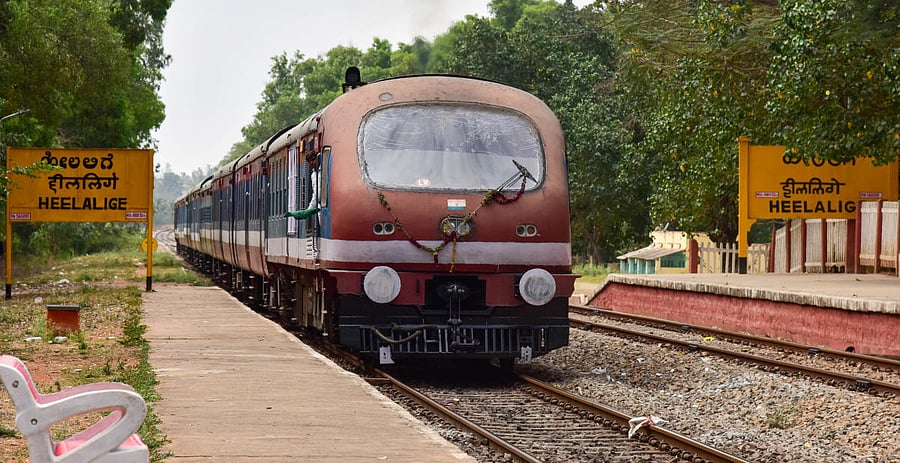
Can a full-fledged suburban rail network for Bengaluru be reimagined with hi-speed rail connectivity under the Public-Private Partnership (PPP) model?
As an alternative to the project funded by the Railways, the Centre and the state government, a model is now proposed through corpus/innovative funding.
At the core of this proposal are six railway stations in the city, upgraded to the Bengaluru airport standards, complete with connectivity links to future high-speed operations. The idea, conceptualised by a city-based thinktank, also envisions seamless multi-modal connectivity options and large volume-based operations.
In a nutshell, the concept is: "Doubling tracks, advancing traffic and signaling systems, world-class railway stations, mass rapid transit requirements like smart cards, automated ticketing systems, safety issues, surveillance and quality of transit, matching that of Namma Metro, could be addressed in the PPP route without burdening the taxpayers."
The Indian Railways could handle the operations, the Catalytic Think Tank Forum suggests. The business ownership of the traffic and commercial potential could be with the concessionaire. The PPP model had been outlined in the Detailed Project Report (DPR) prepared by RITES, which recommended aggressive publicity among potential investors.
Besides modernising the Krantivira Sangolli Rayanna (Bengaluru City) railway station, the proposal calls for a Rs 2,000-crore upgrade of the Yelahanka, Dobbspet, Bidadi, Whitefield stations, and a station close to Electronics City.
Alternative fuel
Operating the network on alternative fuels is another key proposal.
The expert group on methanol, chaired by Niti Aayog member V K Saraswat, had suggested to the chief minister that the waste-to-energy plant in Tumakuru could be converted into a waste-to-methanol plant. The panel had recommended that the suburban rail be entirely run on methanol, saving a lot of time and money in converting to MEMUs.
Zero coupons and travel bonds are part of the innovative financing mechanisms suggested for the network.
Prashanth Srinivas from the thinktank explains: "Bengaluru's IT industry alone has one million travelling population and could subscribe to a Rs 2.5-lakh per employee, zero-coupon bond, which will enable free travel for 10 years in local trains, metro and air-conditioned buses. A plan to raise Rs 15,000 crore on this route can be worked out under the guidance of Niti Aayog."
